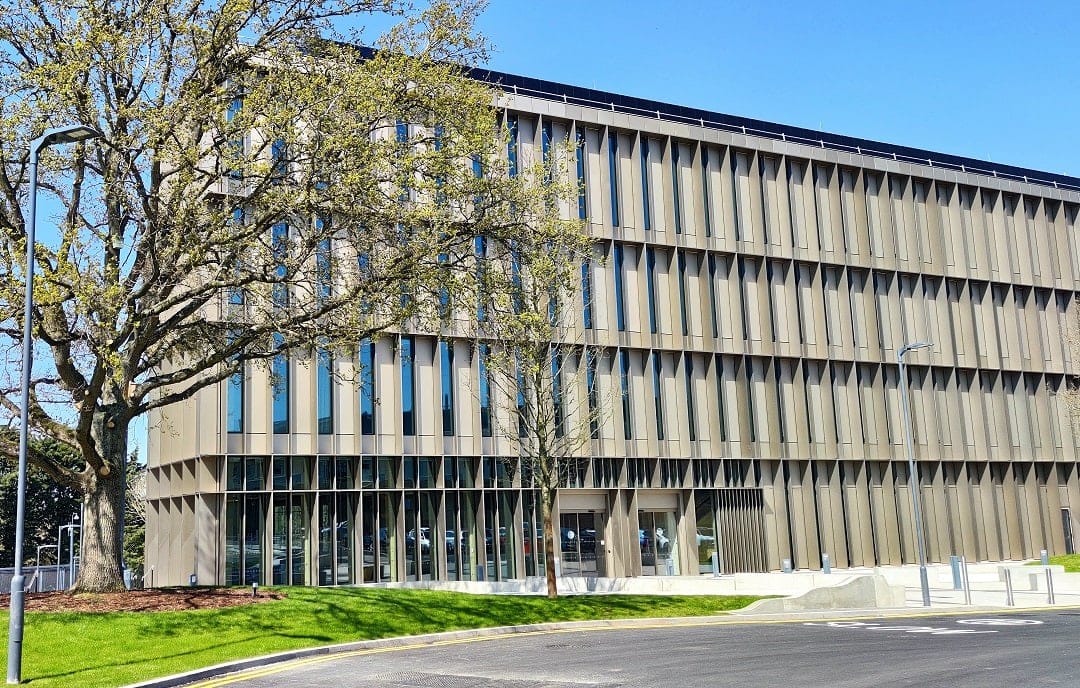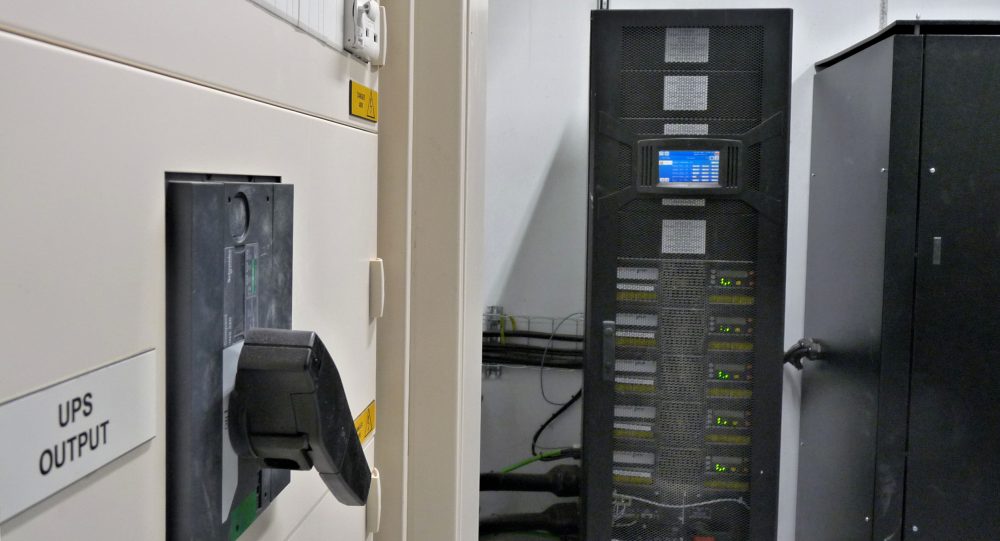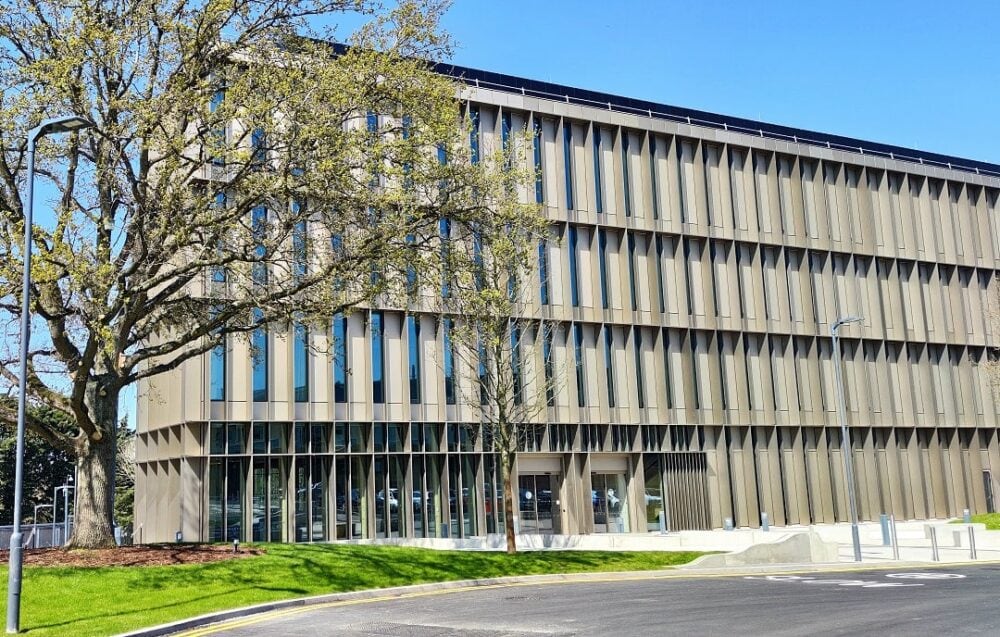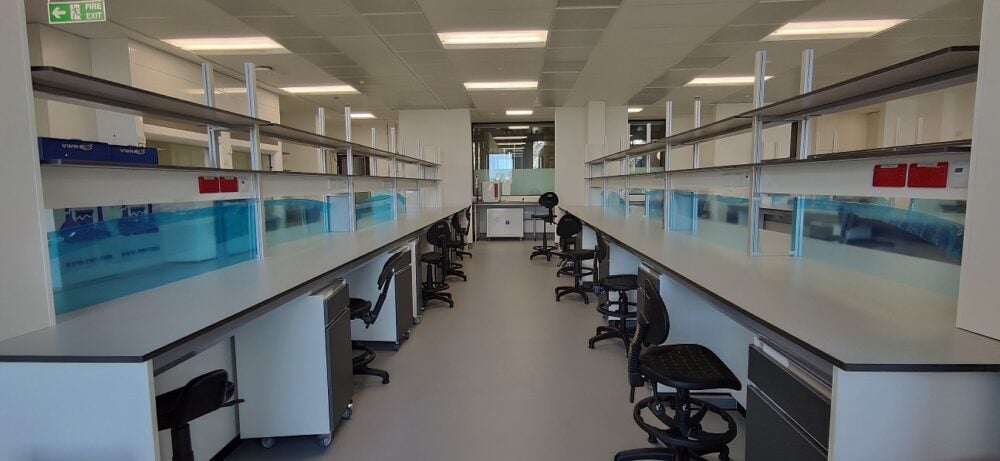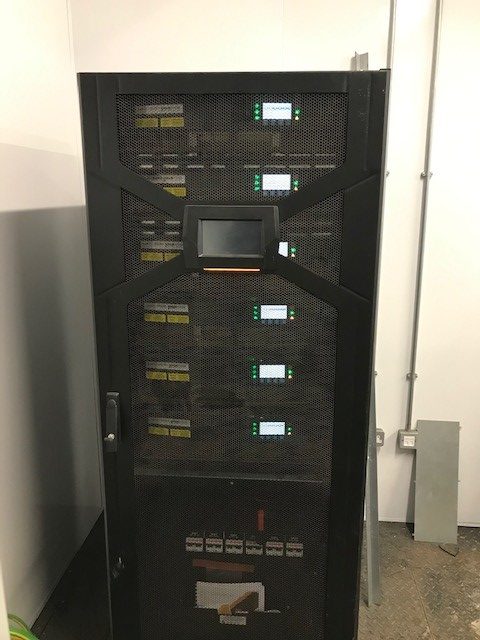The University of Warwick’s (UoW) new Interdisciplinary Biomedical Research Building (IBRB) in the UK brings together 300 biomedical researchers from across the School of Life Sciences and Warwick Medical School to fight human diseases. Its focus is on understanding the origins and mechanistic basis of diseases of the body and brain, with the aim of finding new ways to extend healthy life spans.
The new IBRB builds on UoW’s existing world-class research in neuroscience, microbiology and infection, cell biology, and disease models, supporting and facilitating interdisciplinary biomedical research of the highest quality. Representing an investment of over £50m, the IBRB provides the two schools with a world-class environment in which to train future generations of biomedical researchers.
In June 2020, during the Covid-19 pandemic, a KOHLER PW 8000DPA 100kVA was installed in the IBRB’s new services room located in the basement. This new UPS system was commissioned to support a network of critical power outlets throughout the building. These are used for designated equipment that must continuously function throughout a power disturbance, including analytical and monitoring systems that form part of critical experimental equipment. Based on the initial load, a 100kVA system was selected with 20-minutes battery autonomy, an external bypass switch, cable box for top entry cabling plus site load bank testing to confirm everything was working and delivering what it should.
If the protected equipment were exposed to a power failure, it would result in months of research being lost, key results invalidated, and crucial samples destroyed. Ultimately, this would lead to a significant delay in the research of diseases for the general public. With the designated KUP system in place however, power dips will not result in equipment resets, and any spikes will be prevented from reaching and damaging sensitive components. If the power fails completely, the battery backup system will immediately begin supplying power until the mains power is restored or the onsite standby generator comes online. Featuring energy efficiency of up to 95.5%, low THDi and a near unity power factor the PW 8000DPA UPS system does this whilst minimising environmental impact and ensuring a low cost of ownership.
To conclude, the new KOHLER PW 8000DPA system, coupled with KUP’s support, provides an efficient, dependable, and innovative solution as expected by the University of Warwick Estates Team and will be there to support the critical research being undertaken whenever power disturbances threaten to interrupt it.
“We set out to find a reliable partner able to demonstrate innovative, low energy and low maintenance solutions with a commitment to sustainability. The KOHLER PowerWAVE 8000DPA systems was chosen because of its superb energy efficiency, allowing us to keep running costs low. The small footprint and an innovative, fully modular design improve resilience compared to standalone UPS systems by removing single points of failure. The design also enables 100 KVA to be installed now and another 80kVA to be installed later in 20kVA steps – both future-proofs the building and further-proofs the building and further reduces running cost compared to buying and running at 180kVA unit right from the outset.”
Paul Holland, Electrical Design Engineer, University of Warwick
